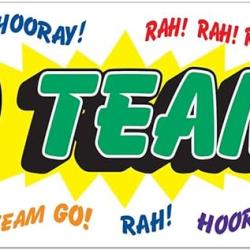I’ve started collecting disingenuous qualifiers.
That’s my term for those little throat-clearing phrases we tend to say that are always followed by the conjunction “but,” after which whatever is said next directly contradicts the preceding phrase.
I’m not exactly sure what I’m collecting these for, I just find them interesting. I think the disingenuous qualifier is a revealing verbal tic. It’s an idiomatic quirk that can tell us something about ourselves, about our perception of others, and about how we wish to be perceived by others.
Some of the disingenuous qualifiers listed below are mostly innocent. They seem to be an attempt to cushion a blow or to brace the listener for what follows by preparing them for something that may be unpleasant, unwelcome or distasteful.
But many of these, I think, are examples of what Francois de La Rochefoucauld meant when he said that “Hypocrisy is the tribute vice pays to virtue.” They acknowledge and thus, in a way, reinforce certain norms or moral rules, even while violating them. They are an expression of reluctance, however fleeting, to be or to be perceived as being in violation of those norms and thus a kind of recognition of the validity of them.
That can serve as a measure of progress — only partial progress, perhaps, but better than nothing. A society in which people feel obliged to say, “I’m not a racist, but …” before saying something racist is at least slightly less hospitable to racism than one in which statements are freely made without any such qualification, however disingenuous.
Disingenuous qualifiers can also serve to flag the presence of self-deception, alerting ourselves to those traits we possess but are reluctant to acknowledge possessing. If in the course of a week I find myself saying numerous times, “I’m not one to brag, but …,” then that’s a strong indication that, in fact, I am one to brag and that this may be something it would be best to admit to myself about myself.
Anyway, here’s my initial attempt at compiling some of these. I’m hoping that others will be able to expand this list with suggestions in comments below. I’d be particularly interested to hear from any polyglots about similar idiomatic tics in other languages besides English.
- I’m not one to brag, but …
- Not to toot my own horn, but …
- Not to pat my own back, but …
- I’m not complaining, but …
- I don’t want to trouble you, but …
- No offense, but …
- Far be it from me to tell you what to do, but …
- Far be it from me to criticize, but …
- Not to be pedantic, but …
- I’m not being picky, but …
- It’s not my place to say, but …
- I don’t want to cause trouble, but …
- I’m not one for gossip, but …
- I hate to say this, but …
- I would never say anything bad about Chris, but …
- I’m sure Pat is a nice person, but …
- I have nothing against Kim, but …
- I don’t want to sound like a jerk, but …
- I don’t want to sound shallow, but …
- I never read those tabloids, but …
- I would never watch Jersey Shore myself, but …
- I’m not an ideologue, but …
- I’m not a racist, but …
- I’m not homophobic, but …
- I’m not sexist, but …
















